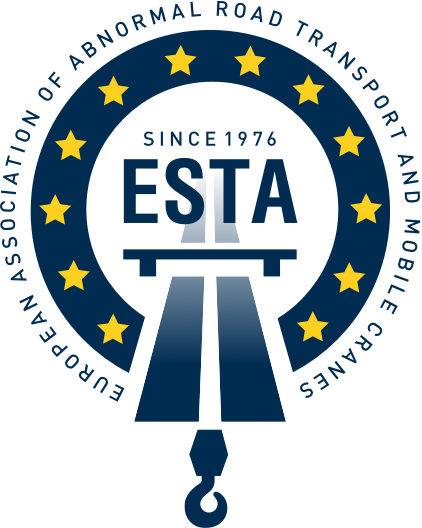Pressure is growing on the German government to take urgent action on the twin concerns of permit delays for heavy transport and weak infrastructure – both of which are causing major problems and additional costs for projects right across the country.
The issue was raised in the German parliament at the end of January and follows a growing chorus of complaints from industry, port authorities and transport companies.
ESTA – the European Association of Abnormal Road Transport and Mobile Cranes – is pressing the German authorities to take urgent action to deal with the difficulties of obtaining heavy transport permits since the country introduced its controversial new VEMAGS permitting system.
VEMAGS is the German online system for the application and approval for oversized and heavy transports in all 16 federal states.
The new system was meant to be simpler and more efficient, but transport companies and their clients say that it is leading to increased costs, unnecessary bureaucracy and even greater delays.
They also complain that permit issuing offices are often under-resourced and often lack the necessary expertise.
ESTA Director Ton Klijn said: “We fear that a large number of transports are being forced to work without the necessary permits in place – simply because the system is not fit for purpose.”
Other industries have joined the debate, saying that the situation is badly harming German business.
At the end of last year, the Bavarian construction association Bayerische Bauindustrieverband launched a scathing attack saying that the current rules and regulations are inefficient, expensive and often impractical.
One of the many examples it gives concerns the transport of large construction machinery. It says that the rules demand that the cargo is precisely identified, including the exact type, manufacturer and model. But this is often not possible, as the type of machine required on site and its availability is often not known far in advance.
The contractors say that the regulations governing large and heavy transport must be streamlined and simplified – and follow common sense.
Similar concerns have been expressed in Hamburg where businesses have said that some companies are using alternative ports such as Rotterdam and Antwerp because of the delays in Germany.
Now German Chancellor Olaf Scholz has been pressed to intervene. Speaking in the German Parliament on January 26, MP Bernd Reuther – the transport spokesman for the FDP, a minority party in the ruling government coalition – called on the Federal Government to take urgent action and speed up the planning and approval procedures for all modes of transport.
Scholz replied that the government will be presenting new measures soon, although no details are as yet available.
Klijn said: “Both ESTA and our German colleagues have been warning of the growing problems faced by the heavy and abnormal transport sector in the country for many months.
“But we are glad that pressure for change is growing from across industry and hope that the authorities will react with the urgency that this situation requires.
“ESTA is always ready to help resolve this issue in whatever way we can – perhaps by bringing to the attention of the German authorities examples of best practice in other jurisdictions.”
Klijn added that the European Commission is showing fresh interest in adopting the European Best Practice Guidelines for Abnormal Road Transport, first published in a European Commission Transport Directive back in 2005.
The directive contains SERT, the Special European Registration for Trucks and Trailers, intended to reduce the paperwork and bureaucracy faced by the industry.
To date only the Dutch road traffic authority RDW issues SERT documents with new vehicles, and it is accepted as an information document by the Belgian, Swedish and English road traffic authorities.
But ESTA hopes that the authorities in Germany and throughout Europe will see that an agreed Europe-wide registration system – as part of accepted best practice guidelines – will save time and money as well as making an important industry safer and more efficient.
(Story first published by Breakbulk)
